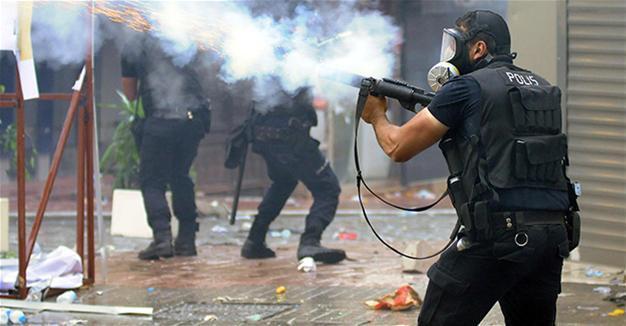Turkey’s top court orders police to be probed in wounding of hearing-impaired Gezi protester
Oya Armutçu – ANKARA

DHA photo
Turkey’s Constitutional Court has ordered an investigation into police officers who are accused of wounding a hearing-impaired demonstrator during the 2013 Gezi protests.Selçuk Yıldız, 28, was wounded and later suffered from a loss of vision when a tear gas canister allegedly fired by police at a distance of just five meters hit him during protests on July 3, 2013.
Yıldız filed complaints against the police officers, but judicial authorities did not permit any investigation, thus resulting in the case being closed. In response, Yıldız’s lawyer, Meltem Aykut Giray, applied to the Constitutional Court.
On Feb. 15, the court issued its ruling, which was then published in the Official Gazette on May 4.
According to Turkey’s top court, the lack of permission to investigate the police constituted “a violation of the ban on maltreatment.” The court duly sent a copy of its ruling to the Istanbul Administrative Court and Istanbul Chief Public Prosecutor’s Office to order the launching of an investigation.
The Constitutional Court ruling could set a precedent for other complainants who were wounded during the Gezi protests, opening the way for them to file new complaints and have their cases reinvestigated.
The court said officials must attempt to learn about the incidents and facts in a serious manner and should not base their decisions on ungrounded findings and justifications so as to rapidly process cases or end investigations.
“All aspects should be learned and a multifaceted evaluation must be made to understand whether the treatment against one is proportional or not in the cases where the law permits the use of force,” the ruling said.
The Gezi protests began in late May 2013 as an effort to stop bulldozers from razing central Istanbul’s Gezi Park, one of the few green spaces left in the city’s Taksim neighborhood, to build a shopping mall. Unrest quickly spread across Turkey, developing into a revolt.
Eight protesters were killed during the unrest.
















